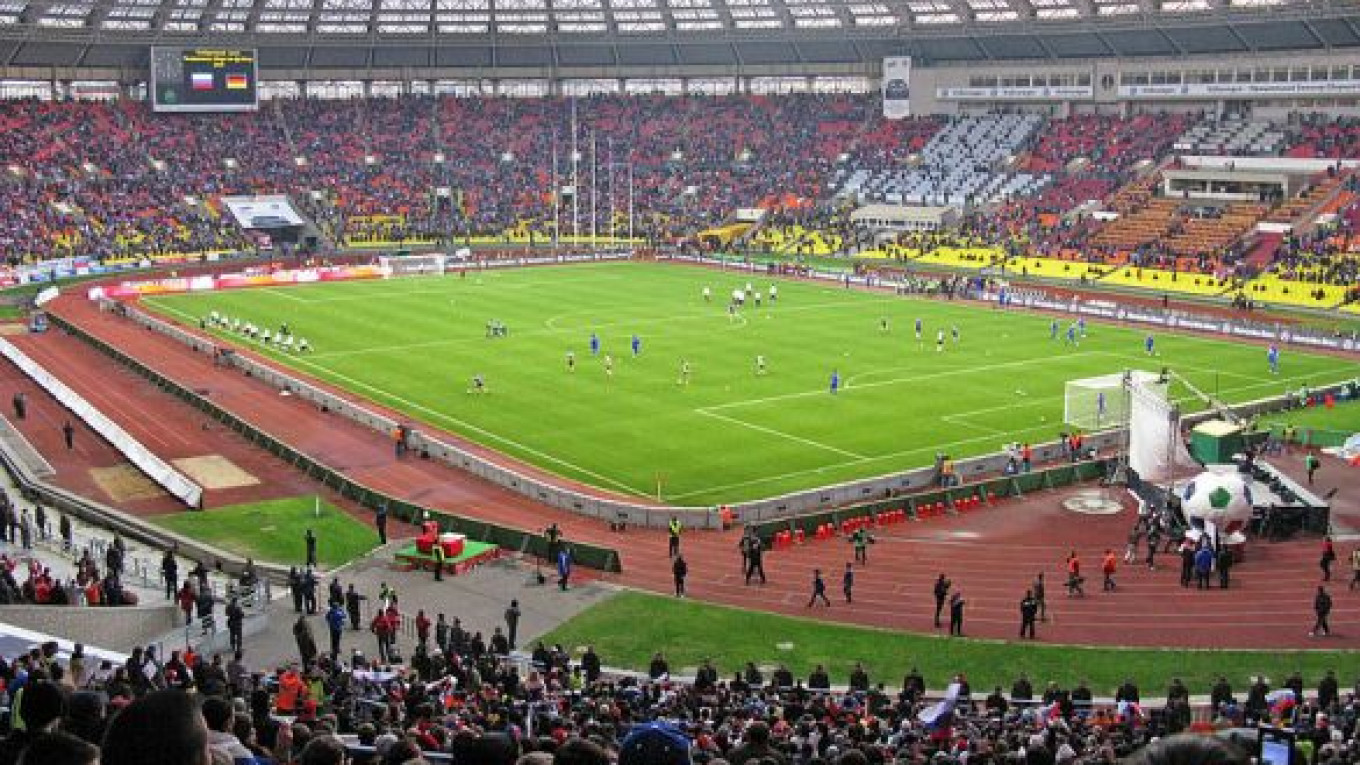Moscow City Hall estimates that the reconstruction of Luzhniki stadium will cost 83.5 billion rubles ($2.6 billion), more than half of which is expected to come from private investors, a news report said Wednesday.
The facility is a slated to host the 2018 World Cup soccer final.
A reconstruction plan for the 153.8-hectare area of the stadium and surrounding territory, approved by the mayor’s office last week, involves renovating sports facilities and building new facilities, including a hotel, a commercial center and service pavilions, Vedomosti reported. Moscow's chief architect Sergei Kuznetsov had earlier said the stadium would be stripped of "everything nonsporting."
The city government expects to spend 39.4 billion rubles on the project, including 20.5 billion rubles allocated for the renovation of the Grand Sports Arena, and hopes that private investors will contribute another 44.1 billion rubles.
But senior vice president of Knight Frank commercial property consultancy Andrei Zakrevsky said the 44.1 billion ruble sum expected from private investors might still be insufficient to cover the costs.
The government's share of spending would also include 5.5 billion rubles for erecting two buildings of a new media center, which can later be offered for sale as office space. Another 13.4 billion rubles have been allocated to replace all the utility lines, which have not been updated since Moscow hosted the 1980 Olympics, said Deputy Mayor Marat Khusnullin.
Private investors are expected to bankroll the construction of a Sambo-wrestling center, a hotel, an administrative building, a commercial center, tennis courts, a figure skating academy and other facilities. They are also expected to foot the bill for renovations of the Small Sports Arena.
A Message from The Moscow Times:
Dear readers,
We are facing unprecedented challenges. Russia's Prosecutor General's Office has designated The Moscow Times as an "undesirable" organization, criminalizing our work and putting our staff at risk of prosecution. This follows our earlier unjust labeling as a "foreign agent."
These actions are direct attempts to silence independent journalism in Russia. The authorities claim our work "discredits the decisions of the Russian leadership." We see things differently: we strive to provide accurate, unbiased reporting on Russia.
We, the journalists of The Moscow Times, refuse to be silenced. But to continue our work, we need your help.
Your support, no matter how small, makes a world of difference. If you can, please support us monthly starting from just $2. It's quick to set up, and every contribution makes a significant impact.
By supporting The Moscow Times, you're defending open, independent journalism in the face of repression. Thank you for standing with us.
Remind me later.






